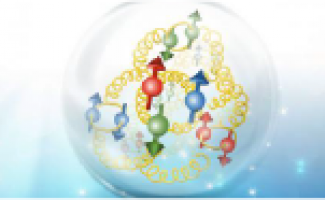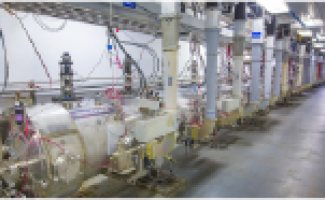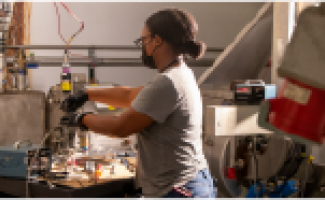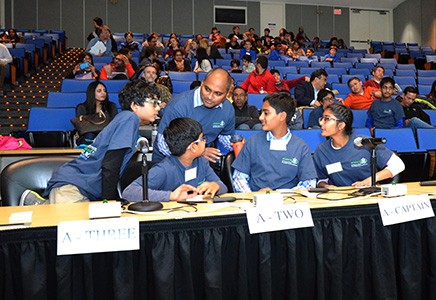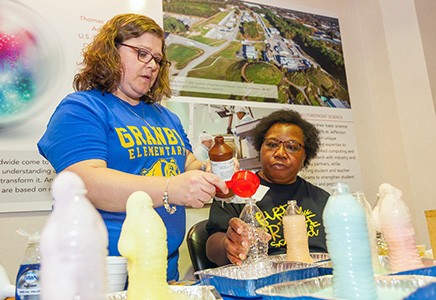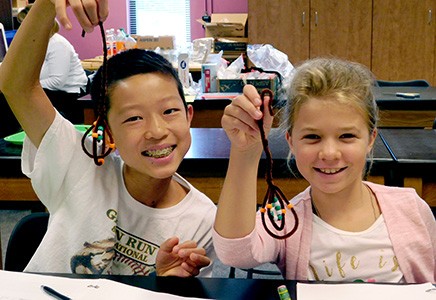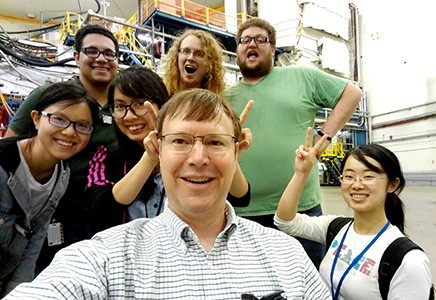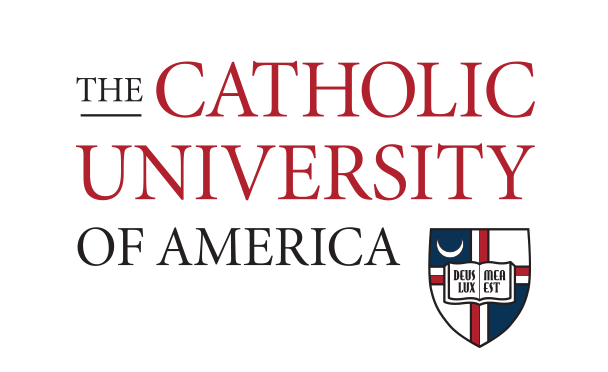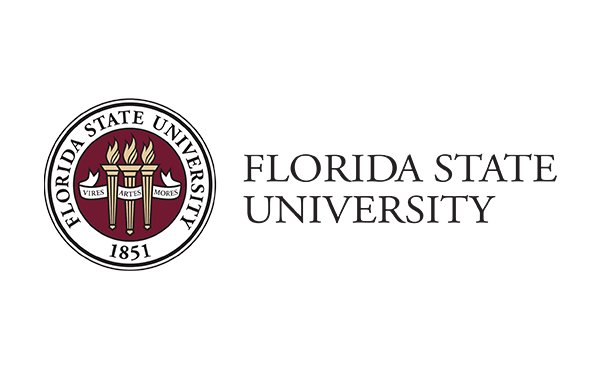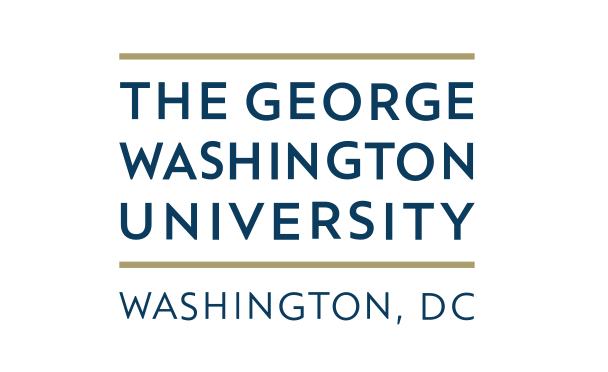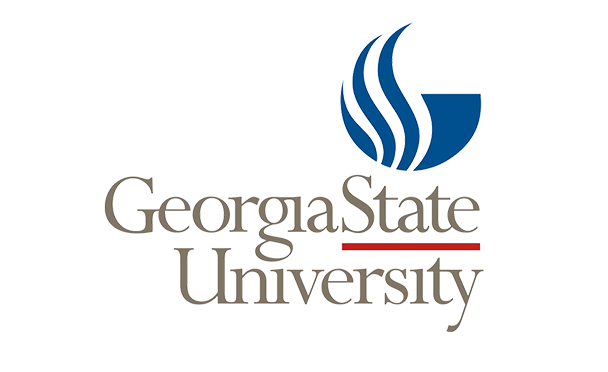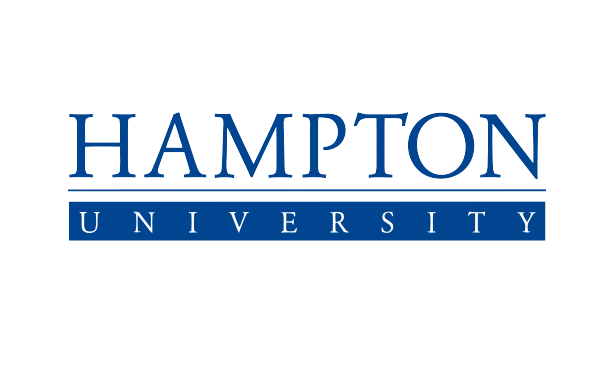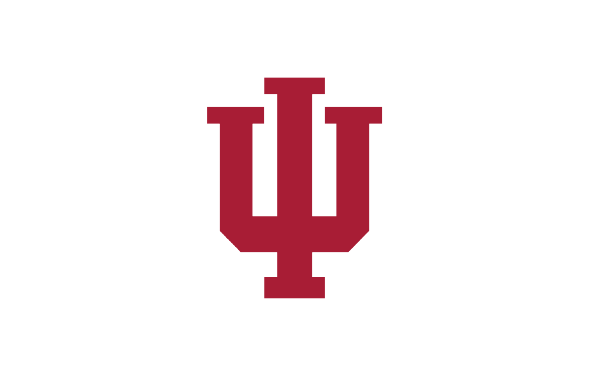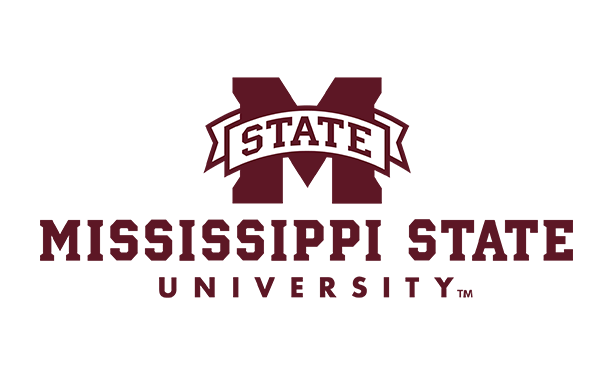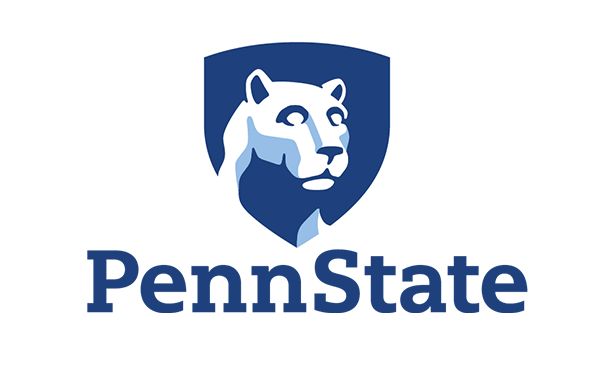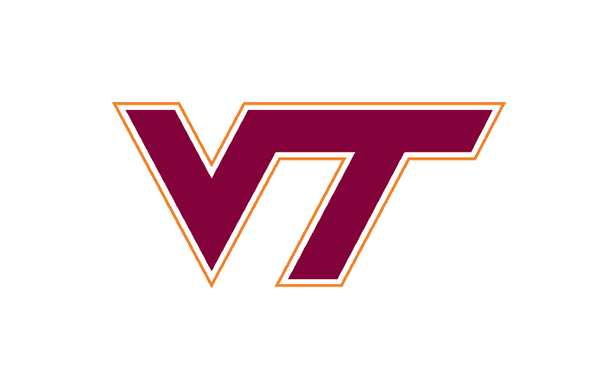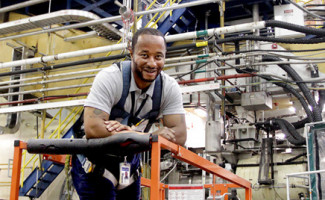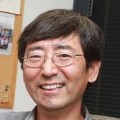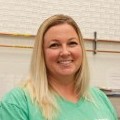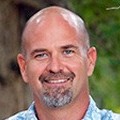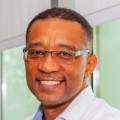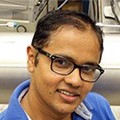Work Coordinator Makes Science Possible
Jessie Butler likes to analyze technologies and figure out how to make complex systems work together. As the work coordinator for Jefferson Lab’s Experimental Hall A, Butler leads a team of four electro-mechanical technicians who are responsible for maintenance and upkeep of experimental equipment and electronics in the hall, ensuring that they will work properly and deliver on the scientific mission of the lab.
To perform his job successfully, Butler is constantly analyzing the new pieces of equipment bound for installation in Hall A, including how they function, what they are made of, how they will physically fit into the hall, and how they will interface with the permanent equipment already there.
“From experiment to experiment, my team is responsible for taking the previous equipment out of the hall and putting in equipment associated with an upcoming experiment,” he explains. Each experiment is comprised of complex equipment that typically takes months to plan and install. For example, some experiments require special ventilation, additional platforms and support structures for the target or special detector systems, or various added safety components. By contrast, some experiments require entirely new and complex equipment that must fit around the two existing approximately 750-ton High Resolution Magnetic Spectrometers.
Once equipment is installed, Butler and his team are responsible for maintaining it, and when needed, fixing it—tasks that require in-depth knowledge of the ever-changing equipment and their technologies, including cryogenics and vacuum technologies required for the particle accelerator and spectrometers to function. “There is no such thing as a typical day and there is very little repetitive work in my job,” Butler says, “In a sense, there is always a learning curve.”
Equipment Fit is Critical
As the primary person responsible for planning each installation from beginning to end, Butler must develop lift plans, determine manpower allocation and carefully orchestrate each element of the installation, maintenance, and eventual removal of every piece of equipment in Hall A.
Here’s how the complex process works: First, scientists come up with an idea for the equipment they will need to conduct their experiment. Then, scientists and designers work together to make a model of the equipment on a CAD (computer-aided design) system. The team then analyzes the model in comparison to a CAD model of the hall. “Everything that’s inside Hall A is in a CAD model,” Butler explains. “Designers build a model of the new equipment in CAD, check to see if it fits the space, then they ask my input to see if it’s accurate. I would then go out with measuring devices and bounce my measurements back off of the CAD model to make sure they all agree.”
To make sure equipment will fit, Butler not only measures the door to the hall, he also measures for egress around permanent equipment, such as the spectrometers, beam line, target area and detector hut. If a scientist wants to install equipment that is too big for the door or space, Butler either has to ask designers to reconfigure the equipment, or he and his team may have to deconstruct the equipment and then rebuild it once it’s inside.
However, if Butler determines that the measurements are accurate, then the process of getting equipment in place moves forward. “Usually, when I agree that things should fit just fine, the scientists and designers continue to move forward in the engineering and approval process and I work on the scheduling. I then stay in contact with the designers and scientists to make sure that I’m aware of all changes and that any new designs can still be put into place. It’s my job to make sure the equipment can physically fit in the time that’s allotted on the schedule,” Butler explains.
Comfort in the Learning Curve
How does Butler handle the huge responsibility of being the final “piece to the puzzle” on whether multi-million-dollar equipment will be installed successfully and continue to function throughout an experiment? “I have a really good team behind me,” he says. Butler also credits his strong military background (he served in the Navy, the Army National Guard and the Air National Guard) that included leading a team of up to 40 by the time he was 25. “The military taught me a lot of discipline and leadership.”
Moreover, Butler feels confident in his leadership role because he is constantly looking for opportunities to improve himself. “I push myself to never feel comfortable,” he says. “If you’re comfortable, you’re not pushing yourself to the highest level. You should push yourself to learn something new, understand something new, and become a better, stronger technician.
Smart Home
Outside of the lab, Butler continues to push himself to learn about new technologies, especially home automation. “I have everything automated on the lower level of my house,” he said. Using a cloud-based automation console, Butler can control his thermostat, lights, television and even his slow cooker with just the sound of his voice. “The thermostat works with remote sensors throughout the house and it will manage temperatures based on a single room by averaging temperatures, if you want,” he explains. “And with the lights, you name an outlet and can then group lights together by room. If it’s raining, the light senses that and can even turn the room blue.”
Unfortunately for Butler, the Hall A equipment is on an older platform and cannot be automated like his home. “If I could automate it, I would,” he quips.
Experimental Hall A
A robust scientific program is already underway in Hall A as the first hall to receive 12 GeV-era beam operations. In addition to researchers using the High Resolution Magnetic Spectrometers already in the hall, substantial new instrumentation is under development.
In the 12 GeV era, a major role for Hall A will be to accommodate large-installation experiments, where scientific collaborations prepare and bring their own equipment to the lab or where purpose-built new equipment such as the future MOLLER and SoLID experiments are installed. These stand-alone experiments will require unique and highly specialized detectors, magnets and targeting systems. Safely installing the equipment, and ensuring safe operations, is critically important to Jessie Butler and his team.




